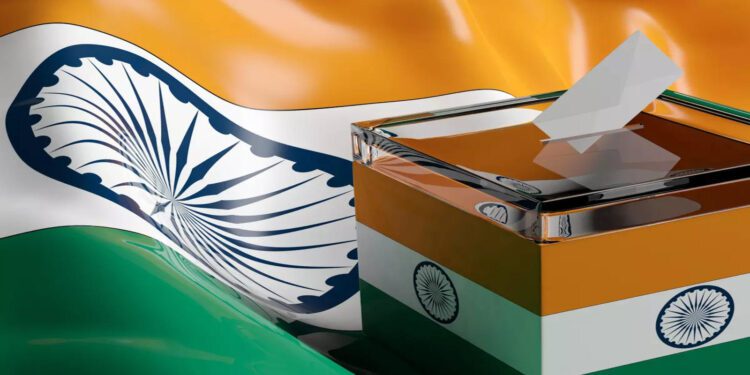India, home to over 1.4 billion people, is gearing up for its mammoth election starting on April 19th. With its sprawling geography, the election is spread across seven phases, spanning nearly six weeks. This colossal operation involves over 969 million eligible voters, making it the largest electorate in the world.
The Dominance of Modi’s BJP and The Modi Factor
The Bharatiya Janata Party (BJP), led by Prime Minister Narendra Modi, is the frontrunner in this election. Riding on Modi’s popularity and the party’s Hindu nationalist agenda, the BJP is seeking a third consecutive term in power. With a strong parliamentary majority already in hand, the BJP aims to secure over 400 seats in the 543-seat parliament.
Modi’s charismatic leadership and humble background have endeared him to many voters. His image is ubiquitous across the country, bolstered by welfare schemes and infrastructure projects bearing his name. The BJP’s formidable propaganda machinery and grassroots support further enhance Modi’s appeal, making him a dominant force in Indian politics.
Challenges and Controversies
Despite the BJP’s strong position, challenges remain. Discontentment over issues like unemployment, inflation, and agrarian distress could dent the party’s electoral prospects. Moreover, concerns about the fairness of the election have been raised, with allegations of media suppression and government influence over key institutions like the Election Commission.
Implications of a Third Term
A victory for the BJP could signal further consolidation of Hindu nationalist policies and a shift away from secularism. The party’s ambitious goal of amending India’s constitution to enshrine Hindu-first principles raises concerns about minority rights and democratic values. Additionally, Modi’s continued leadership may usher in a period of increased authoritarianism and polarization.
The Opposition’s Dilemma
Facing an uphill battle against the BJP’s dominance, opposition parties, including Congress, struggle to present a united front. Allegations of government crackdowns and electoral malpractice add to their challenges. Despite efforts to challenge the BJP’s narrative, opposition parties remain fragmented and face an uncertain electoral future.
Key Issues at Stake
As the election unfolds, key issues like economic development, job creation, and social welfare take center stage. While the BJP emphasizes its track record of growth and infrastructure development, the opposition highlights concerns over income inequality and social justice. The outcome of the election will shape India’s trajectory for years to come, with far-reaching implications both domestically and globally.
India’s upcoming election is not just a national event but a global spectacle. As the world’s largest democracy navigates its electoral process, the stakes are high, and the outcomes will reverberate far beyond its borders. With Modi’s BJP aiming for a historic victory, and opposition parties grappling with challenges, India stands at a pivotal crossroads, where the choices made will shape its future trajectory.
















